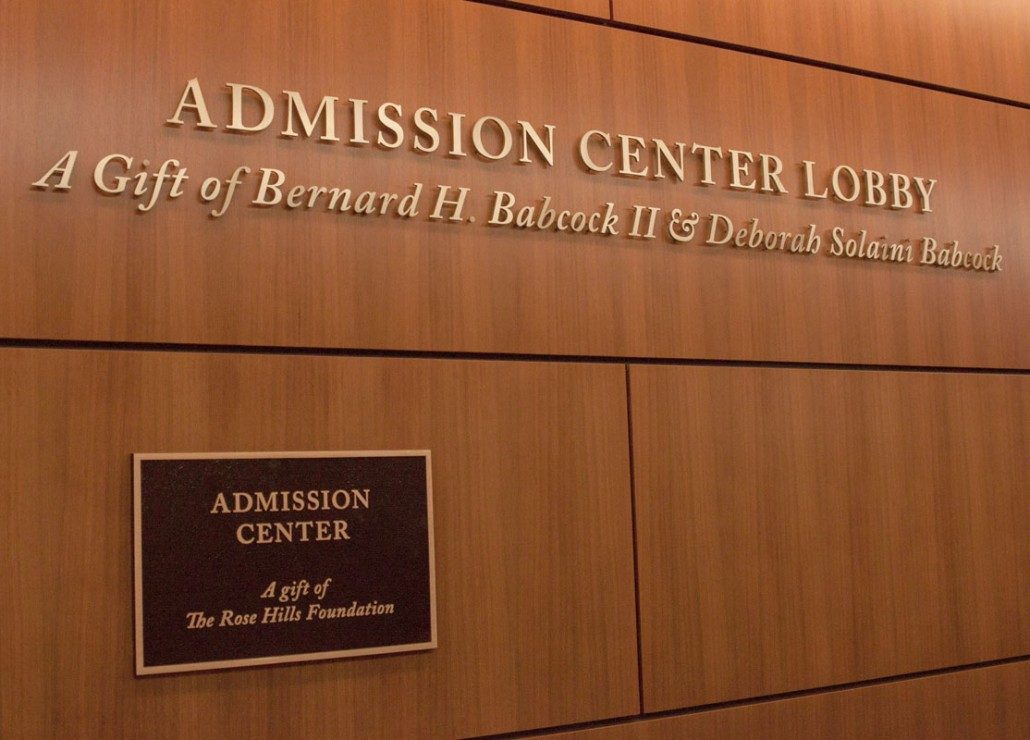NACAC amends college admission ethics code

( Daily Trojan file photo)
Delegates from the National Association for College Admission Counseling voted in late September to revise elements of their ethics code to allow incentives for recruiting early decision applicants, transfer students and students after the May 1 National College Decision Day deadline.
Previously, the association barred colleges from offering incentives, such as improved financial aid or special housing packages, to early decision applicants. Additionally, the new rules will allow colleges to recruit students after a deposit has been submitted to another institution and solicit transfer applications from previous applicants regardless of whether that student inquired about transferring — both of which were previously prohibited.
The conference comes two years after the Department of Justice began an investigation into whether NACAC’s Codes of Ethics and Professional Practice violated antitrust laws. The Justice Department argued that rules restricting recruitment practices reduced competition among colleges, which may lower the cost for students.
On Sept. 28, NACAC voted 211 to 3 in favor of revising the policies.
Rossier School of Education adjunct professor Robert Massa said the new policies apply business and for-profit principles to the not-for-profit world of education.
Massa, who attended the conference, said that initial changes likely won’t be felt immediately at USC and other large, selective institutions across the country.
“I think to start out, initially, [the regulatory changes] will have a minimal impact,” Massa said. “Because admissions officers know that it’s the right thing to do not to entice students to apply to their institution early based on an incentive.”
But, according to Eric Hoover, senior writer at the Chronicle of Higher Education and an expert on college admissions, the changes may bring more “uncertainty” to different aspects of higher education.
“Because colleges now are free to pursue students who’ve committed elsewhere after the May 1 deposit deadline, financial aid offers could keep flying all summer long,” Hoover wrote in the Chronicle. “Poaching another institution’s students while devising ways to protect your own could become a familiar exercise for many enrollment leaders.”
In a statement to the Daily Trojan, the Office of Admissions said it was monitoring NACAC code changes.
“We are reviewing in detail the changes that the National Association of College Admissions Counseling made to its Code of Ethics and Professional Practices,” the statement read.
Steve Desir, a doctoral candidate in Rossier who attended the conference, said that he also believes that impacts on USC’s admission processes would be limited. However, Desir said how USC chooses to apply these changes “is more a question about who USC wants to be” from a values standpoint.
Though existing concerns include institutions using the ethics code to justify “poaching” students from other schools, Massa hopes that USC will refrain from poaching.
Massa explained that smaller, less selective institutions will likely feel the effects of these regulatory adjustments. But with more time, he believes the admissions process will see more “cutthroat competition.”
“The USCs of the world are not exempt from this,” Massa said.
USC’s involvement in the Operation Varsity Blues FBI investigation this year may serve as an important context to how these changes may impact admissions. However, Massa said that the Justice Department’s investigation was initiated separately from the admissions scandal.
“While USC might not be implicated by the changes to the code of ethics, I think the conversation around fairness, affordability and inclusion — given the scandal that we just had in the past year — it’s really a space that USC should be engaged in,” Desir said.
Though unrelated, the two investigations do share common ground related to public distrust of college admissions.
“All of us are concerned about the lack of trust in the college admissions process,” Massa said. “So from that perspective, Varsity Blues is a symptom of that lack of trust.”
According to Desir, USC’s place in the discussion concerning admissions ethics is especially relevant given the visibility of the University’s admissions processes over the course of the past year.
“I think there’s a real opportunity with these changes to the code of ethics. The conversations happening in the field [allow] for us to be as bold as we were then about thinking about who is a USC student and how do we provide leadership in this space that is grappling with these really challenging questions,” he said.

